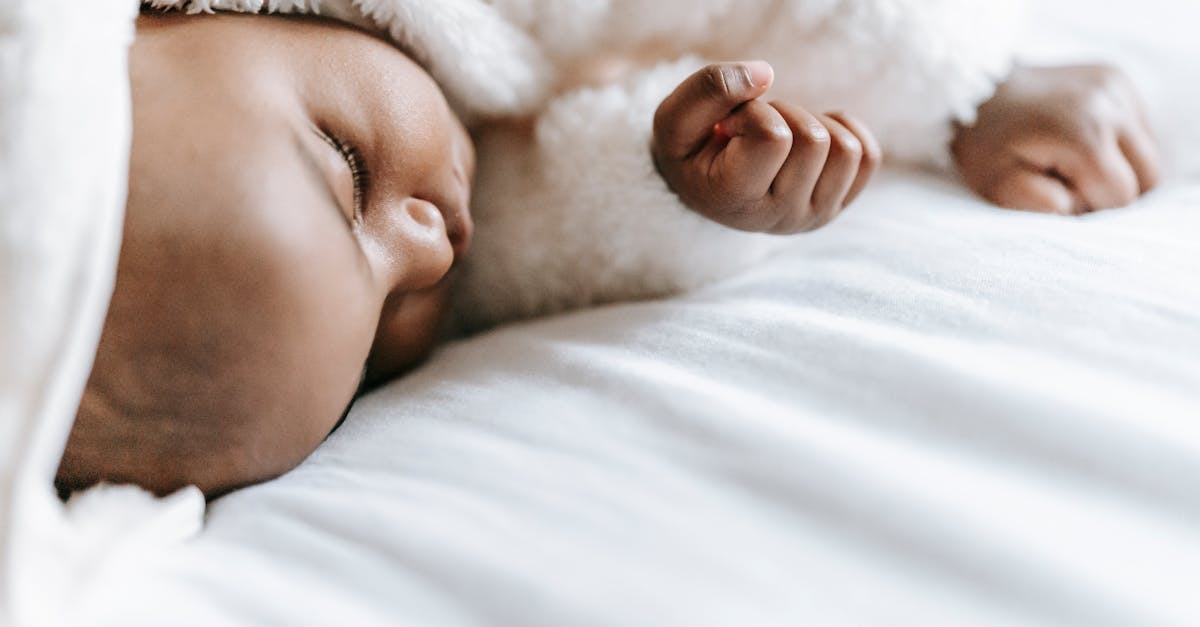Why Sleep Matters for Babies
Have you ever wondered why your baby sleeps so much? Sleep is crucial for infants. It helps with physical growth and brain development. During sleep, babies’ brains process new information and experiences, helping them grow mentally and emotionally. Think of it as your baby’s ‘download time’!

Sleep is essential for babies as it plays a vital role in their overall well-being. It is during sleep that their bodies have the opportunity to grow and repair tissues. Moreover, adequate sleep can contribute to a baby’s ability to focus, learn, and develop healthy sleep patterns later in life.
Establishing a consistent bedtime routine for your baby can greatly improve their sleep quality and duration. Creating a calming environment, dimming lights, and reducing noise levels can help signal to your baby that it’s time to sleep.
- Physical Growth: During sleep, growth hormones are released, stimulating physical development.
- Brain Development: Sleep is crucial for the brain to organize and store information acquired throughout the day.
- Emotional Well-being: Sufficient sleep can lead to a happier, less fussy baby.
Remember, every baby is different, and their sleep needs may vary. Understanding your baby’s sleep cues and patterns can aid in creating a sleep routine that suits them best. Prioritizing healthy sleep habits from an early age can set the foundation for a lifetime of restful sleep and optimal development.
How Much Sleep Do Infants Need?
So, how much sleep does your little one actually need? Newborns need 14-17 hours of sleep each day, though they don’t get it all at once. As they grow, their sleep patterns will change. A 6-month-old typically needs about 12-15 hours. It’s important to respect these needs for optimal brain development.

Understanding the sleep requirements of infants plays a crucial role in ensuring their overall well-being and development.
Stages of Infant Sleep
Not all sleep is the same. Babies go through different sleep stages. They cycle between REM (rapid eye movement) and non-REM sleep. Interestingly, REM sleep is when their brains are most active, processing everything they’ve experienced. Non-REM sleep is deeper, helping with physical growth and repair.

Sleep and Brain Development
Believe it or not, sleep affects how your baby’s brain wires itself. During sleep, brain cells communicate and form connections. This helps with learning, memory, and overall brain function. Adequate sleep is linked to better cognitive abilities and emotional health as they grow.

Tips for Better Infant Sleep
Need tips for getting your baby to sleep better? First, establish a bedtime routine. A warm bath, soft lullabies, or a gentle rocking session can signal to your baby that it’s time to sleep. Keeping a consistent bedtime can also help. Another trick is to make their sleeping environment cozy but safe.

Common Emotional Challenges for Parents
You’re not alone if you feel overwhelmed by your baby’s sleep patterns. Sleepless nights are tough! Many parents feel anxious or guilty if their baby isn’t sleeping well. Remember, you’re doing your best. Don’t hesitate to seek support from other parents or talk to a professional if you’re struggling.

Remember: It’s okay to feel overwhelmed, and seeking help is a sign of strength, not weakness. Take care of yourself, and remember that you’re doing a great job!
